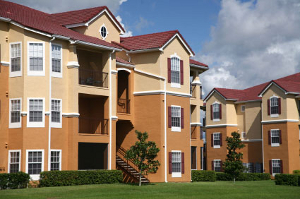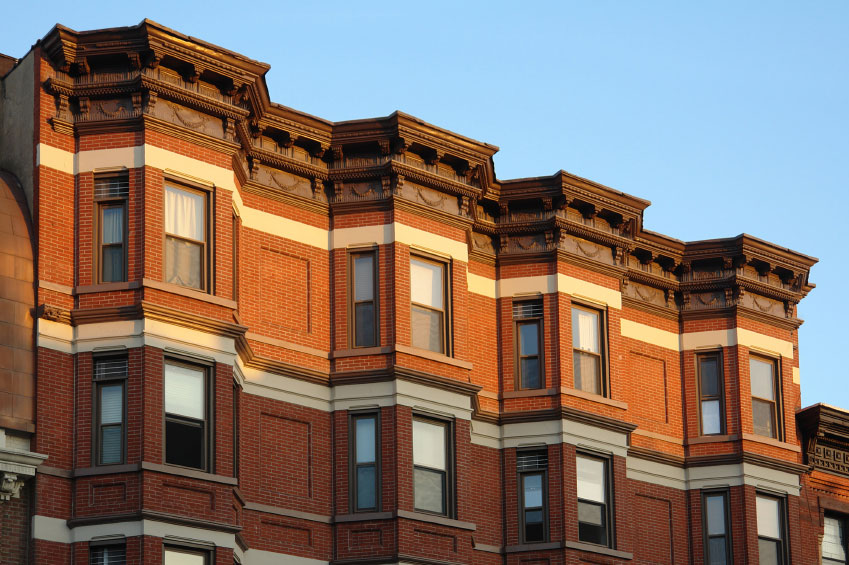Buying a Condo ? Consider These Tips
By Liz Clinger Updated on 7/19/2017
Purchasing a condo can be very much different from purchasing a single family home. One of the most important criteria for deciding whether or not to go with this option is know the monthly maintenance (HOA) fee.
Many buyers are priced out of range due to the high fees that must be added to the mortgage payment for loan approval. Another factor to consider is that many Condo Associations aren't approved by Lenders due to various reasons.
Deciding on a first property is always very difficult. You might find asking yourself the inevitable question: "Should I buy a Condo?" or "Should I buy a Single Family Home"?
Many first-time home buyers start out by buying condominiums rather than detached homes. With affordable prices and the possibility of value appreciation over time, condos can be beneficial and can provide homeowners with equity that can be invested in a larger house in the future.
However, while condos may present a tempting first home option, borrowers should not purchase them carelessly. As with any other home, thoroughly research the property and consider the circumstances to ensure that the deal is optimal.
When purchasing a condo, consider the following factors before making a commitment:
Ownership (remodeling)
When a buyer purchases a condo, he or she does not actually own the structure. Instead, buyers own the empty space within the condo, colloquially referred to as “air space” in the real estate industry.
As such, buyers do not necessarily have the right to alter or change the physical layout of the condo, unlike homeownership, in which the buyer can remodel or make improvements at any time.
Accordingly, buyers need to evaluate whether the condo meets their needs and is worth the investment, as it cannot be rehabilitated or remodeled.
Price
Condominiums can be purchased at a wide range of prices, and buyers should generally be able to find a condo that does not exceed their budget. When it comes to these properties, price depends on various factors, including size, location, and any upgrades that may have been enacted.
Size
As mentioned above, condo buyers cannot make additions to a condo or else modify the existing structure. Therefore, buyers should always make sure that the condo is of suitable size.
Location
When choosing a condo, buyers should carefully consider the reasons for living in a condo and select one in a location that satisfies this basic purpose. For instance, if you would like a condo located close to school or work, choose a condo within walking distance. If you do not own a car but would still like to be able to get around, search for a condo near public transportation.
Neighbors

Unlike in a traditional detached home, in which you are separated from neighbors by both distance and several walls, homeowners living in a condominium live with neighbors in close proximity behind only inches of walls. In order to avoid being subject to unpleasant, loud, or disruptive tenants, it is critically important to evaluate the neighborhood of the condo complex before purchasing a property.
To accomplish this, visit the complex several times and assess the types of people who reside there. In addition, visit at various times of the day to develop an understanding of what the neighborhood is like during the afternoon, evening, and late night.
If possible, try to get to know some of the people who live in the complex and determine whether they qualify as acceptable neighbors.
Tenant Complaints
Buyers should not only evaluate the people who live in the complex but also the condo association itself. View the minutes of the condo association board meetings to find out if any owners have raised complaints; if a complaint has returned several times without resolution, the complex may have difficulties with management.
Even if the minutes do not show any complaints, buyers can still learn what kinds of projects are currently being enacted at the complex, including projects which the seller may have strategically neglected to disclose.
Amenities
Condo complexes can have a variety of amenities, such as swimming pools, hot tubs, basketball and tennis courts, laundry services, and gym or fitness facilities. Before committing to a purchase, find out what kind of amenities are offered and determine whether or not these satisfy your needs.
Maintenance
When purchasing a condominium, buyers additionally pay for a certain degree of property maintenance and grounds keeping. Before buying a condo, find out whether or not the management company has enacted maintenance and resolved any issues in a timely manner.
Inquire with some of your soon-to-be-neighbors about their experiences with the property management staff and make an assessment.
Property Insurance
Condo buyers do not need to purchase homeowner’s insurance; instead, the management company that owns the condo complex buys and pays for insurance. However, buyers should ensure that the condo association has a strong insurance policy to cover any damages done to your condo.
Association Rules
Before buying a condo, be sure to read and understand the rules for the building. Some associations, for instance, limit the size, amount, or type of pets allowed. If you cannot abide by the rules of the complex, consider finding another complex.
Association Financing
Research the finances of the condo association and consider how much funding is in reserve in order to protect yourself from any future financial difficulties of the complex. In addition, keep an eye out for an unusual amount of foreclosures or vacant units; this could be a red flag future premiums increases to compensate for losses of revenue.
Additional Fees
Condo ownership often requires the payment of Homeowner’s Association (HOA) fees or other charges to cover the cost of maintaining community amenities and maintenance.
When deciding on a condo complex, understand the costs before making a commitment to avoid being surprised by unexpected expenses when you move in.

Didn't find the answer you wanted? Ask one of your own.

Contributing Authors
Related Articles
Ask our community a question.
Searching Today's Rates...

Featured Lenders
Kat Whitman
Whitman Met, Inc.
Sacramento, CA
Cameron Burke
Vision One Mortgage
Huntington Beach, CA
Lisa Stepp
RBS Citizens
Clifton Park, NY




